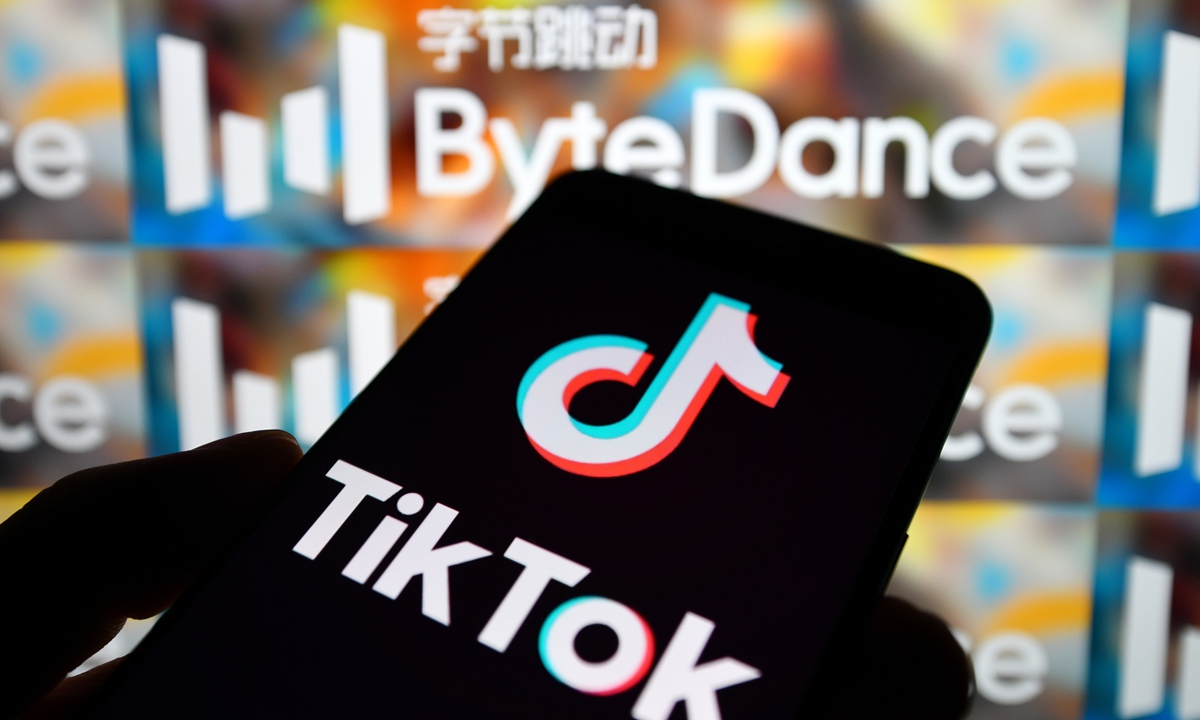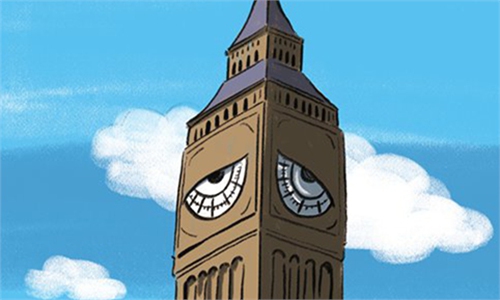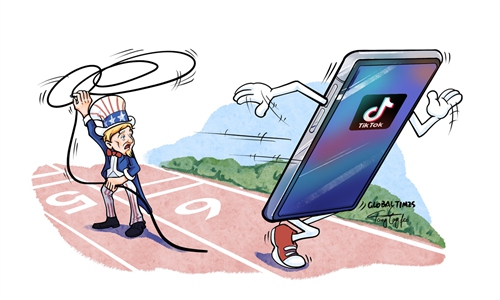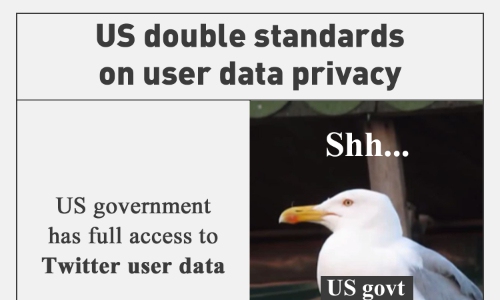Montana's ban on TikTok draws backlash, 'mirrors' US double standards on free speech

TikTok Photo: VCG
TikTok, the popular short-video platform owned by Chinese internet giant ByteDance, faces the first statewide ban in the Montana, the US state of Montana. Such an extreme and aggressive move, having provoked a backlash among American people and agencies, mirrors the US' relentless trampling on free speech and its obvious double standards when it comes to foreign entities, experts said.
Montana Governor Greg Gianforte on Wednesday signed a bill, which was passed by the state's legislature last month, to ban TikTok from operating in the state to "protect" residents from alleged intelligence gathering by China, making it the first US state to do so.
The law prohibits the company from operating in the state and requires app stores to block users in Montana from downloading TikTok. TikTok's users won't face fines for using the service, but app stores and TikTok face daily fines of $10,000 for violating the law.
In response, a spokesperson for TikTok said: "Governor Gianforte has signed a bill that infringes on the First Amendment rights of the people of Montana by unlawfully banning TikTok, a platform that empowers hundreds of thousands of people across the state.
"We want to reassure Montanans that they can continue using TikTok to express themselves, earn a living and find community as we continue working to defend the rights of our users inside and outside of Montana," the spokesperson added.
TikTok has faced mounting political pressure in the US as a number of Republican-led states have banned using the app on government-issued devices after the FBI warned of possible threats to national security since the end of last year.,
Montana is the first state to impose a total ban on the app, meaning that the general public can't have access to the platform.
The bill in Montana has provoked a strong backlash from American users and some agencies.
A social media user wrote under the ban tweet of the Montana governor that "it has nothing to do with protection… If it was about security, Facebook would be banned much quicker."
"The law violated the free speech rights of hundreds of thousands of people in Montana who use the app… [It] tramples on our free speech rights under the guise of national security and lays the groundwork for excessive government control over the internet," the American Civil Liberties Union wrote on Twitter.
The law, which is set to take effect in January 2024, is highly like to face legal challenges and the deadline to take effect could be delayed accordingly, a senior lawyer at Beijing DHH Law Firm, who asked to remain anonymous, told the Global Times on Thursday.
It has a major flaw because it lacks a factual basis for concerns about user data and other aspects, and the ban could severely restrict the free speech of American citizens, directly violating the First Amendment, the lawyer said.
The US' bullying against TikTok has gone far against the values of free speech and an open internet that it has upheld for decades, which reflected its double standards when it comes to anything that could shake the US' hegemony in whatever field, like the technology race, He Weiwen, a senior fellow at the Center for China and Globalization, told the Global Times on Thursday.
"The witch hunt by the US government on TikTok and other firms with a Chinese background has become a normal political operation, which has nothing to do with national security or data security but shows a cold-war mindset," He noted, adding that the UScountry is using national power to meddle with fair market competition.
TikTok has become such a global phenomenon that it surpasses other social platforms in terms of traffic and is also more convenient for making money.
Its app revenue has grown for seven consecutive quarters. TikTok has generated $205 million more than Facebook, Instagram, Snapchat and Twitter combined, via in-app purchase revenue, so far in 2023, Forbes reported in March, citing data from mobile metrics company Apptopia.
The Biden administration has threatened to ban TikTok if ByteDance, which is the mother company of the app, doesn't divest its stake in the popular video app, which is apparently robbing the profitable firm from China.
"The Montana ban is an aggressive and extreme move that has been rolled out at the state level, which is not unexpected, because it is easier to operate compared with the federal level," He said.
Calls to ban TikTok nationwide didn't advance in the US Congress after TikTok CEO Shou Zi Chew was grilled in March by a Congressional committee about whether the Chinese government could access user data or influence what Americans see on the app.
During the hearing, Chew's attempts to illustrate TikTok's business operations were frequently interrupted and his requests to elaborate on the concerns of members of US Congress were also blocked.
It was a stark contrast with the scene when Apple CEO Tim Cook visited an Apple store in Beijing's Sanlitun, where he was warmly welcomed with cheers and applause.
TikTok has faced growing calls from US lawmakers and officials to ban the app nationwide as it was thought to be somehow linked with the Chinese government, although the company has said numerous times that it has never shared data with the Chinese government and would not do so if asked.
Chinese authorities have repeatedly blasted the US' unreasonable crackdown on the Chinese app, urging the US to respect the market economy and fair competition rules, stop the unreasonable crackdown on foreign firms, and provide an open, fair and non-discriminatory environment for other countries' firms in the US.



